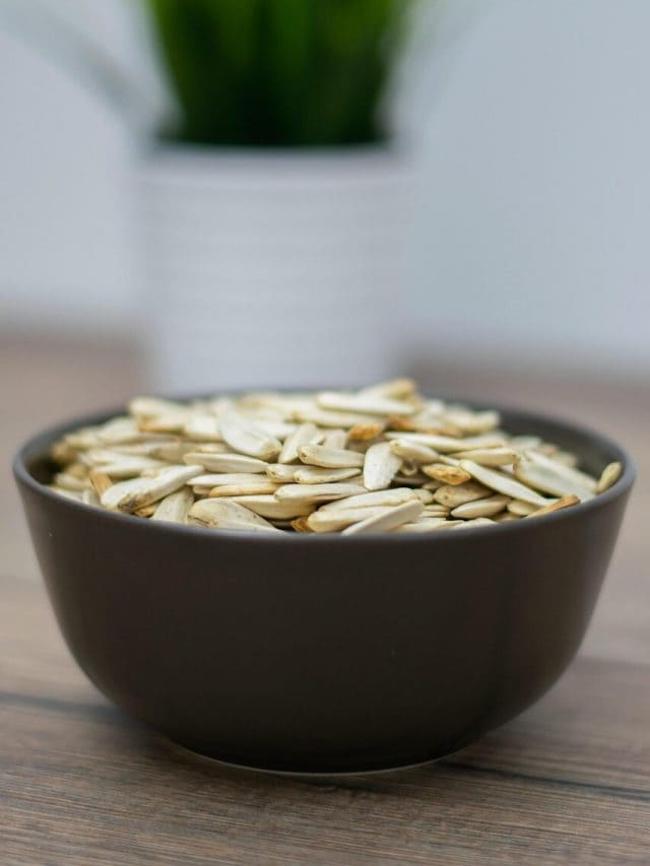Summary
Packed with nutrients like vitamin E, magnesium, and healthy fats, sunflower seeds offer major health benefitsfrom heart and brain support to immune defense and blood sugar control.
Source: CNBCTV18

AI News Q&A (Free Content)
Q1: What are the primary nutrients found in sunflower seeds, and how do they contribute to human health?
A1: Sunflower seeds are rich in vitamin E, magnesium, healthy fats (both monounsaturated and polyunsaturated), protein, and fiber. Vitamin E acts as an antioxidant, protecting cell membranes from damage. Magnesium supports muscle and nerve function, while healthy fats promote heart health. The seeds are also a source of selenium and phytochemicals, which contribute to immune defense. These nutrients collectively support cardiovascular health, brain function, and glycemic control.
Q2: How do sunflower seeds support heart health according to recent nutritional guidelines?
A2: Current dietary guidelines recognize sunflower seeds as a heart-healthy food due to their high content of unsaturated fats and low levels of saturated fat. Consuming unsalted, roasted sunflower seeds can help lower LDL cholesterol and reduce the risk of cardiovascular disease. Their phytosterol content further aids in cholesterol management, supporting overall heart health when included as part of a balanced diet.
Q3: What evidence exists for sunflower seeds' role in regulating blood sugar and supporting metabolic health?
A3: Studies have shown that the fiber and protein in sunflower seeds help modulate blood sugar spikes after meals. Magnesium, abundant in sunflower seeds, has also been linked to improved insulin sensitivity. Regular consumption may contribute to better glycemic control, making sunflower seeds a beneficial snack for those managing type 2 diabetes or metabolic syndrome.
Q4: Are sunflower seeds considered a safe and effective nutrition supplement for children and older adults?
A4: Sunflower seeds are generally safe for both children and older adults when consumed in moderation and in appropriate forms (e.g., hulled and unsalted). Their nutrient density makes them a valuable snack for supporting growth in children and maintaining nutrient intake in seniors. However, portion control is important to avoid excessive calorie intake, and those with seed allergies should avoid them.
Q5: What did recent scholarly research reveal about the impact of plasma treatment on the germinative properties of sunflower seeds?
A5: A 2020 study explored the effects of cold atmospheric plasma treatment on sunflower seeds, finding that plasma exposure can enhance the seeds' germinative properties. The research demonstrated changes in the seeds' electrical capacitance and other parameters, concluding that plasma treatment could be used to improve germination rates in sunflower seeds and potentially other crops.
Q6: How do sunflower seeds fit into recommended daily allowances for key nutrients like vitamin E and magnesium?
A6: A single ounce (about 28 grams) of sunflower seeds can provide nearly 50% of the recommended daily intake for vitamin E and around 23% for magnesium. This makes them a convenient way to help meet daily nutritional targets for these essential nutrients, which play roles in immune function, antioxidant protection, and energy metabolism.
Q7: What distinguishes linoleic, high oleic, and sunflower oil seeds in terms of their nutritional profiles?
A7: Linoleic sunflower seeds are highest in polyunsaturated fats, while high oleic varieties have more monounsaturated fats, which are considered especially heart-healthy. Sunflower oil seeds are bred primarily for oil extraction and tend to have a different balance of fats than the confectionery types. These differences influence their applications in food and nutrition, with high oleic varieties favored for their stability and health benefits.
References:
- Sunflower seed - Wikipedia: https://en.wikipedia.org/wiki/Sunflower_seed





